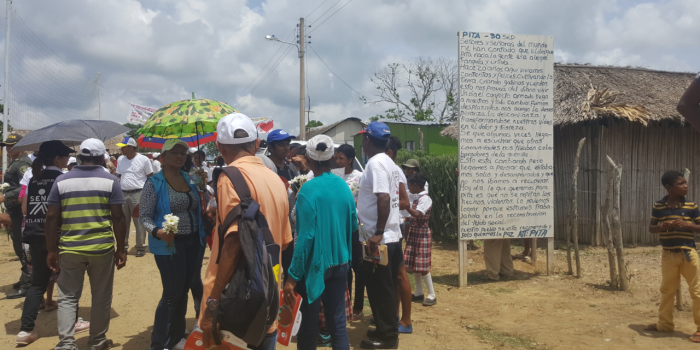
Atlantic mayors must update contingency plans for humanitarian emergencies
The Unit provides technical assistance to the municipal and departmental territorial entities for the construction and updating of the 2020 contingency plans.

The Victims Unit has been conducting the accompaniment in Atlántico to the 22 municipal mayors, the district of Barranquilla and the Government of the department, in order to build the plans of the current validity, making the process simpler and easier for the territorial entities.
In a virtual training meeting led by the Sub-Directorate of Prevention and Emergency Attention of the entity and the Atlantic Territorial Directorate, the mayors of Juan de Acosta, Galapa, Malambo, Manatí, Piojó, Puerto Colombia and Santa Lucía, were the first to receive said accompaniment and advice from the Unit.
“The Contingency Plan is a fundamental part of the Territorial Action Plan, which is why municipal, district and departmental administrations have the duty and obligation to finance, implement and update, on an annual basis, contingency plans in the Territorial Committees for Transitional Justice, in accordance with the provisions of Law 1448 of 2011 and Decree 4800 of 2011, hence our responsibility to advise and technically support this process", said Alfredo Palencia, Territorial Director of the Atlantic Unit .
The Unit for Victims is the entity responsible for providing technical assistance to territorial entities to carry out the formulation, approval and implementation of contingency plans for humanitarian emergencies due to the armed conflict. It is a technical tool that defines the procedures, actions and strategies, with financial, human and physical resources allocated by the territorial entities, to prevent and address victimization processes derived from such emergencies.
The entity an allays the different manifestations of the armed conflict in the country that require timely and quality attention, for which it urges in all the country's territories on the need to plan and allocate resources for the care of humanitarian emergencies, which not only minimize their costs in the medium and long term, but rather they avoid the re-victimization of the population, favor decision-making, generate institutional response capacities and allow immediate action, the way in which the political decision of state institutions is carried out, the accompaniment of civil society and international cooperation.
(End/HDP/CMC/LMY)






